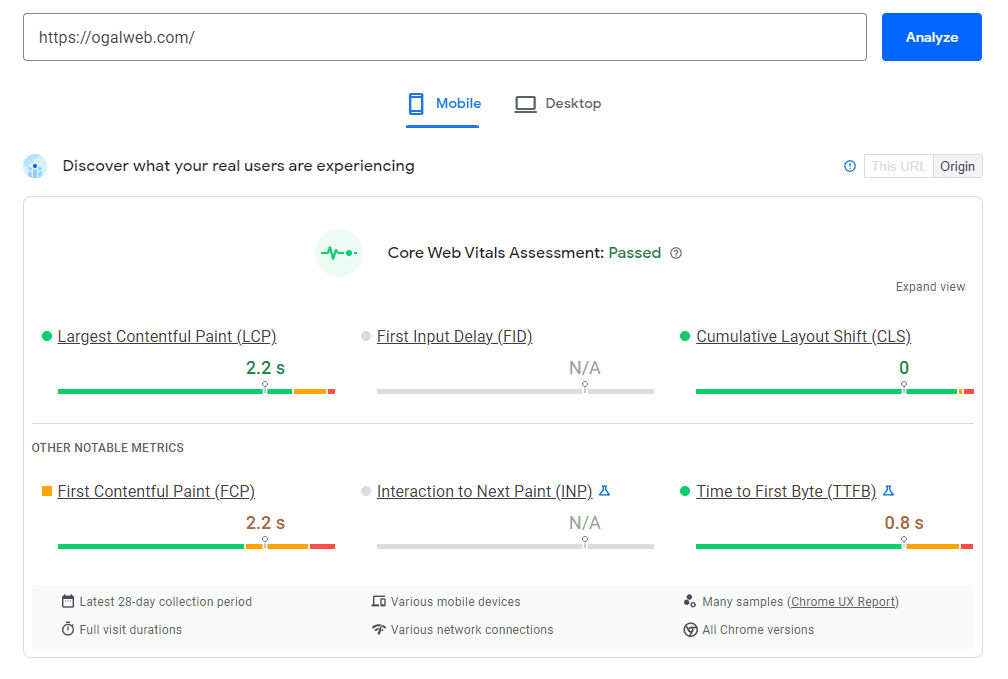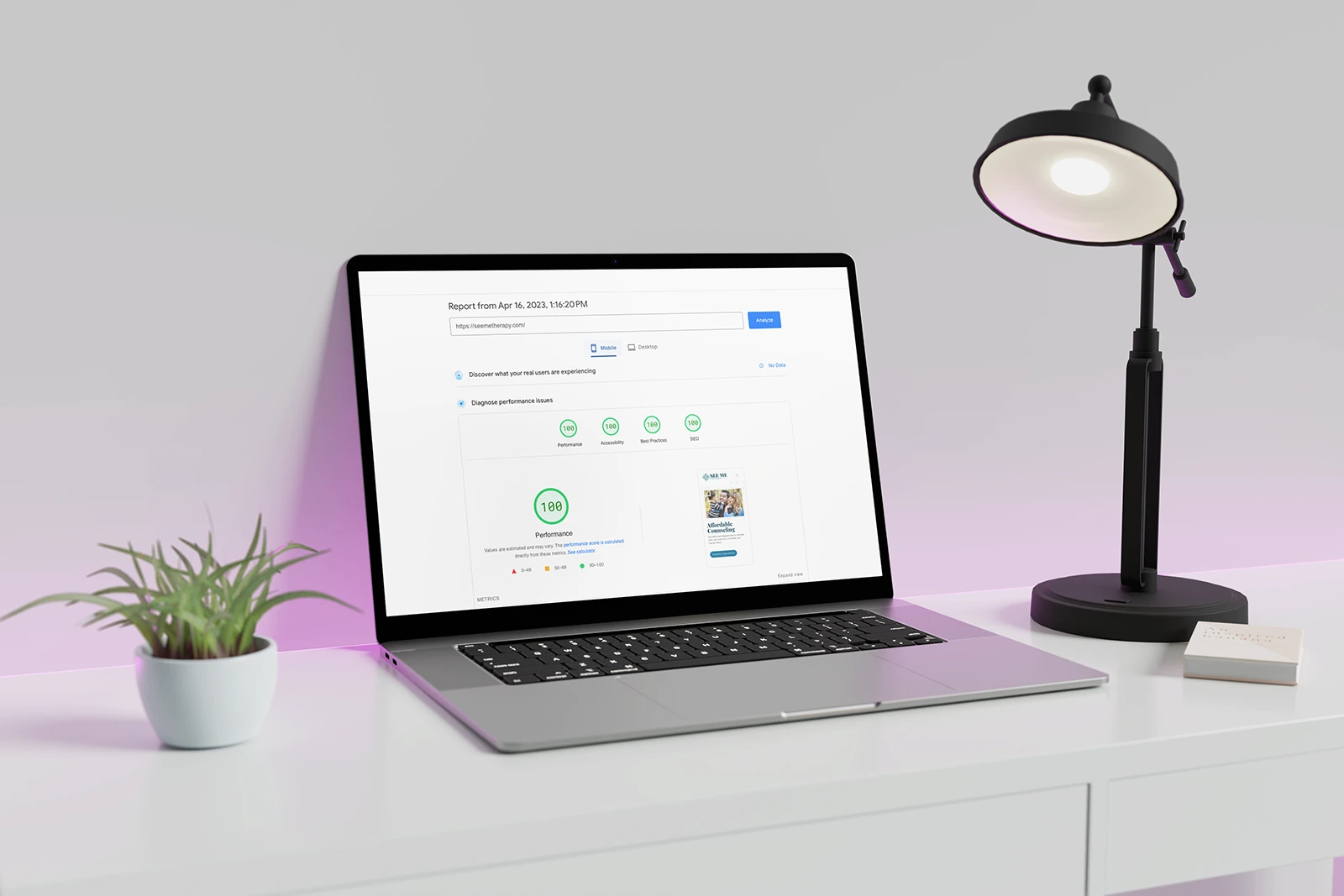Of course you know that SEO stands for Search Engine Optimization! That’s an easy one. Everyone knows that.
But what does search engine optimization actually mean? And how does it apply to your website? And are you doing it on your website? Should you be?
If this line of questioning causes you to break into hives, relax. SEO is more straightforward than you might think, and it’s a potent tool in helping your website bubble to the top of a Google search.
The gist of SEO
Search engine optimization is using specific keywords in your website copy to attract the attention of a search engine like Google and earn a higher ranking in search results.

Internet users are searching for keywords directly and indirectly related to your business. Including the right keywords on your website can help more users find your business.
And more importantly, using the right keywords in the right way can help your website attract ideal customers who are ready to book a call or purchase your products.
You can also optimize your website for search engines by ensuring that it loads quickly and correctly, even on mobile devices. Search engines like to see that all of your links are working and there are no broken pages or missing images.
How Google decides which websites are the best
When a user types keywords into the Google search bar, Google’s search algorithms find websites that use those keywords.
In the past, simply having lots of keywords on your website was enough to beat the search competition and rank first in the search results. But this led to “keyword stuffing”, where website owners could just dump a lot of keywords on their website to get traffic, regardless of whether their sites were good.
Google’s algorithms are far more sophisticated these days. You have to optimize your website for the right keywords and technical aspects of your website. Google ranks websites by weighing:
- The keywords you use on your website.
- How naturally these keywords appear in the text.
- Whether the content of the website is relevant to the user’s search.
- How recently and how often the content is updated.
- Whether keywords are accurately included with images and videos as well as in the text.
- How many other websites include links to your website, and whether those referring websites are trustworthy.
- Whether your website delivers a good experience for users, for instance, does it load quickly and correctly, and is it mobile-friendly?
That means that keywords need to appear in your page content because they belong there. If you are writing original content that is relevant and helpful to your visitors, keywords will naturally be included. It also means that you need to start building relationships with other reputable websites that could link to yours (and vice versa) when appropriate.
But if your website is new, or if you’re just starting to pay attention to SEO as a marketing tool, you’ll need a targeted SEO strategy to begin building a good reputation with search engines.
SEO takes time and effort. You wouldn’t expect to have a 6-pack after spending one evening at the gym. Like exercise, SEO is an ongoing process that is most effective when it’s part of a committed, long-term strategy that you constantly tweak and improve.
The top 4 SEO tactics to use on your website
While it’s true that building a good SEO strategy takes stamina, the sooner you start optimizing your website for the right keywords, the sooner your search ranking will start to rise.
You can get started improving your website’s SEO practices by targeting these four areas:
On-page/technical
Technical SEO refers to the technical elements that make your website helpful and relevant to users, like how quickly your website loads, how well it is organized, and its mobile-friendliness. You can improve your technical SEO by ensuring that it loads fast, loads correctly even on mobile devices, doesn’t have any broken links or missing pages, and your navigation is simple and clear.

On-page SEO includes your technical SEO and a host of other elements. For healthy on-page SEO, you need accurate titles on every picture and video, fresh and informative text on your pages, URLs that make sense, and unique and well-written content.
Content, content, content
Speaking of content, consistently updating your website with original content is hugely important for your Google ranking. “Content” refers to the information on your website that visitors consume, like the text on your pages, the images and videos they view, and the articles you write for your blogs.
When it comes to content, search engines like it hot and fresh.
When it comes to content, search engines like it hot and fresh. Your content should be original (never plagiarize!) and relevant. It should include keywords where it’s natural to have them, but don’t stuff them in.
Content should also be well-organized on your website, which search engines will reward with a higher ranking and which also makes it easier for visitors to find the information they need. And you should promote your original, relevant content on your social media channels by including links back to your content. As you’ll read below, those links are another useful SEO tactic.
Backlinks
Backlinks are links on other websites that refer back to your website. They prove to readers (and Google’s search algorithm) that your website is a trustworthy source of information.
When other websites include referral links to your website, Google assumes that your website provides thought-leading information that readers will value, and you start to rank higher in search results.
But search algorithms can spot spam a mile away. So before you start soliciting referral links from any ol’ Tom, Dick, or Harry, remember that for backlinks to be effective, they should be from reputable websites.
You can start to build relationships with businesses in industries that are complementary but not competitive with yours and include backlinks on one another’s sites when appropriate.
You can also offer to “guest blog” for other businesses and include links to your site in the blog where applicable.
Ongoing improvements
SEO is like the laundry: it’s never really finished. And like the laundry, it’s a more manageable task if you do a little bit every day instead of ignoring it and letting it pile up.
SEO best practices stipulate that you should constantly improve your website
Your website may seem like a finished product, but links get broken, images fail to load, and information becomes incorrect. SEO best practices stipulate that you should constantly improve your website content, measure your visits and visit lengths, and make more changes based on those measurements.
And Google is changing, too. Google makes hundreds of small changes to its algorithms every year, so even if you think you’ve mastered the art of ranking number one in Google, you’re only ever one algorithm change away from slipping back down the ranks. Healthy website maintenance will help you keep ahead of most of these algorithm changes.
Improving your SEO is cyclical. If you start to rank higher, you’ll get more visitors to your website. If your website experience is better and includes helpful content, visitors will stay longer, click on more links, and visit more pages.
The length of time they stay on your website and the number of pages they explore help improve your Google rankings further. Good SEO is the gift to your website that just keeps giving.
Hit the SEO mark with regular audits
Regularly auditing your website’s SEO is critical. You’re looking for technical and content issues on your website that could be repelling Google’s search algorithm.
- Ensure Google is indexing your website, which means that it has found your website and recorded it in its database. If your website isn’t indexed correctly, it is pretty much invisible to Google.
- Check for on-page SEO problems like failing to include meta titles, meta descriptions, and ALT text on every single page and image.
- Find any backlinks to your website and make sure they are from reputable websites.
- Check that your website offers a good user experience: load times are quick, images are loading properly, and the site loads correctly for mobile and desktop users.
- Decide which keywords are best to include on your website and check that they are used naturally on every page.
- Beef up your content to be sure it offers users helpful and actionable information.
Improve your search rankings the easy way
While SEO will always be a long-term project, you can lighten the burden of weekly SEO audits and content changes by investing in an SEO package with me! 🙂
I’ve helped dozens of my clients move to the first page of Google’s search results and stay there. Even better, I’ve helped them build the website experience and quality content that attracts search engines as well as quality leads who are more likely to stay, explore, and purchase.
Get a free quote, and we’ll explore how SEO can help you get found online. Customers are looking for your website. Let’s help them find it.




